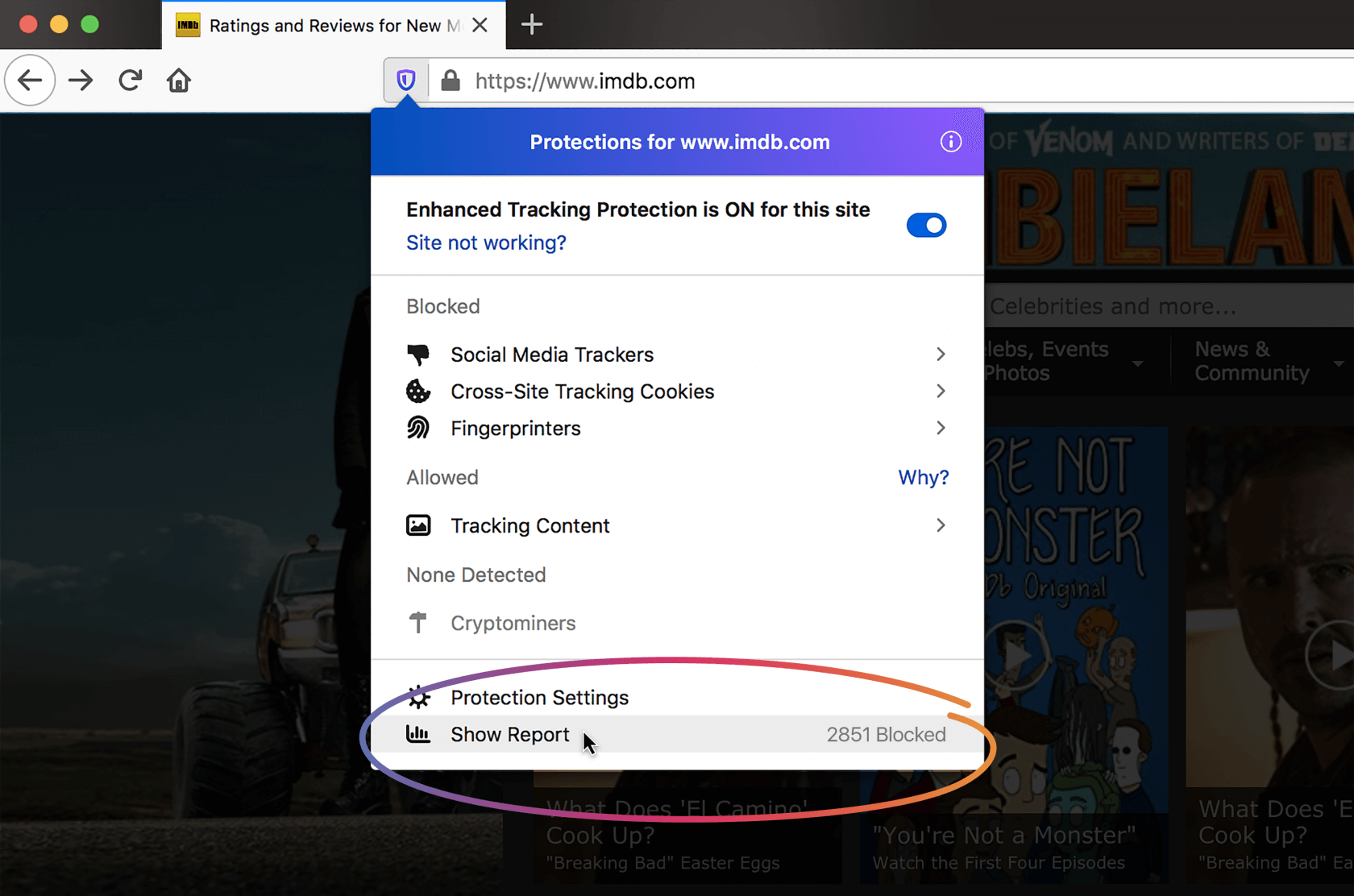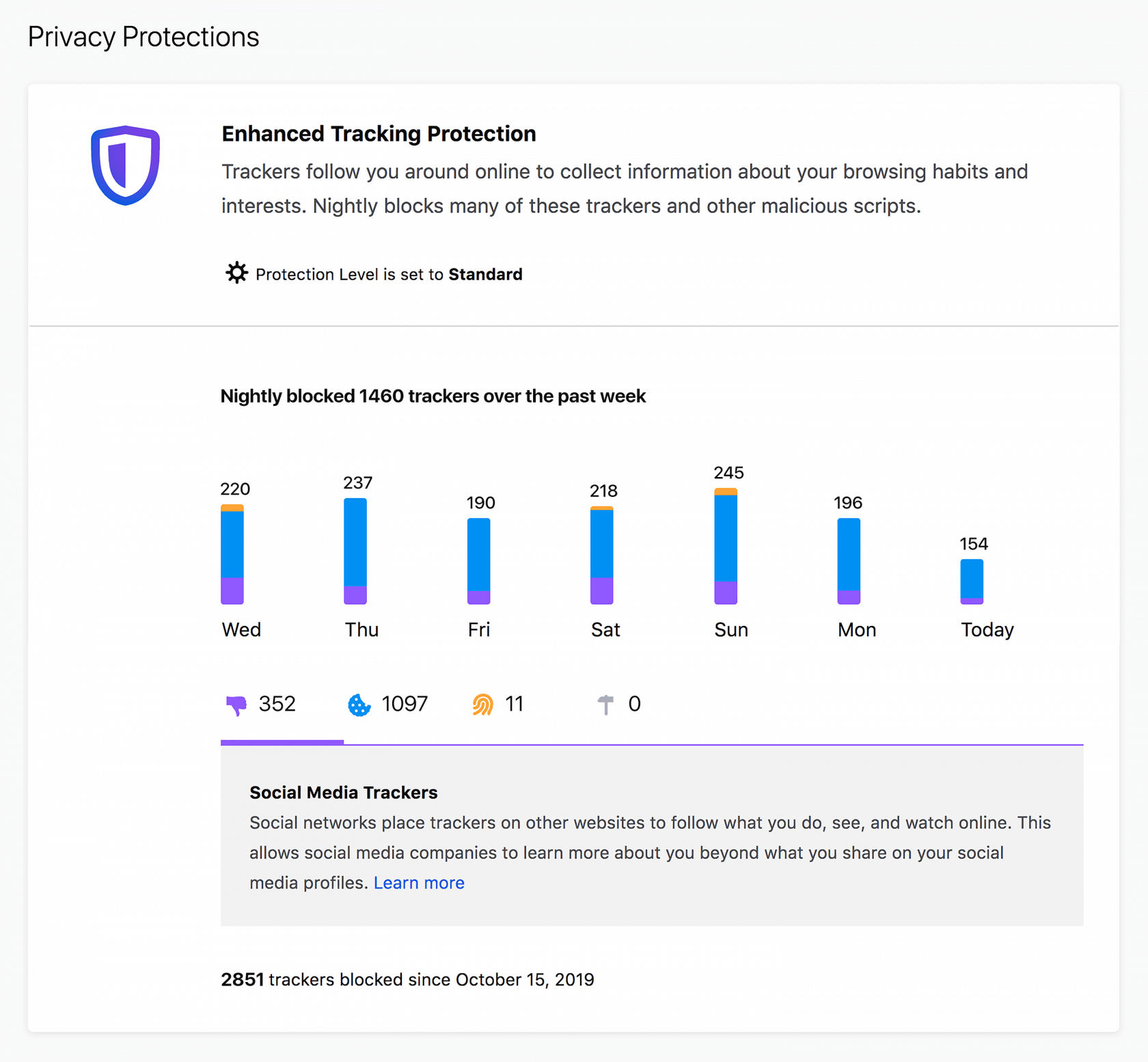In context: Firefox continues to use privacy as the defining feature that distinguishes it from browser market incumbent Chrome. While Google struggles to strike a balance between privacy and protecting its massive revenue stream from online advertising with Chrome, Mozilla continues to prioritize a privacy-first approach in its latest Firefox release.

Over the summer, Firefox rolled out enhanced privacy protections aimed at blocking tracking requests, a feature that became standard with September's Firefox 69 release. While these protections mostly took place behind the scenes, with its latest release, Firefox is ready to shine a light on third-party trackers with a new privacy protections dashboard that includes privacy reports.
By default, the level of protection is set to "standard." You can opt for more serious settings, albeit at the cost of some sites not working properly. To access the privacy protections dashboard, users will need to click the shield icon in the left corner of the address bar.

The privacy report will give users an overview of the most recent week of activity, showing the number of third-party trackers blocked according to type. As of today with Firefox 70, Firefox will also block cross-site trackers from the likes of Facebook and Twitter, which should cull the amount of creepy, overly-personalized ads.

From within the new privacy protections dashboard, users can also access Firefox Lockwise and Monitor. For this release, Lockwise is getting an update to include a password generator, as well as tighter integration with Monitor to alert users if their information has surfaced in a data breach. You can grab Firefox 70 here.
Mozilla isn't the only one cracking down on cross-site tracking; Apple has taken a hardened stance on cross-site tracking with Safari, too, citing inspiration from Mozilla's privacy policies.
https://www.techspot.com/news/82448-firefox-70-adds-privacy-reports-letting-you-track.html